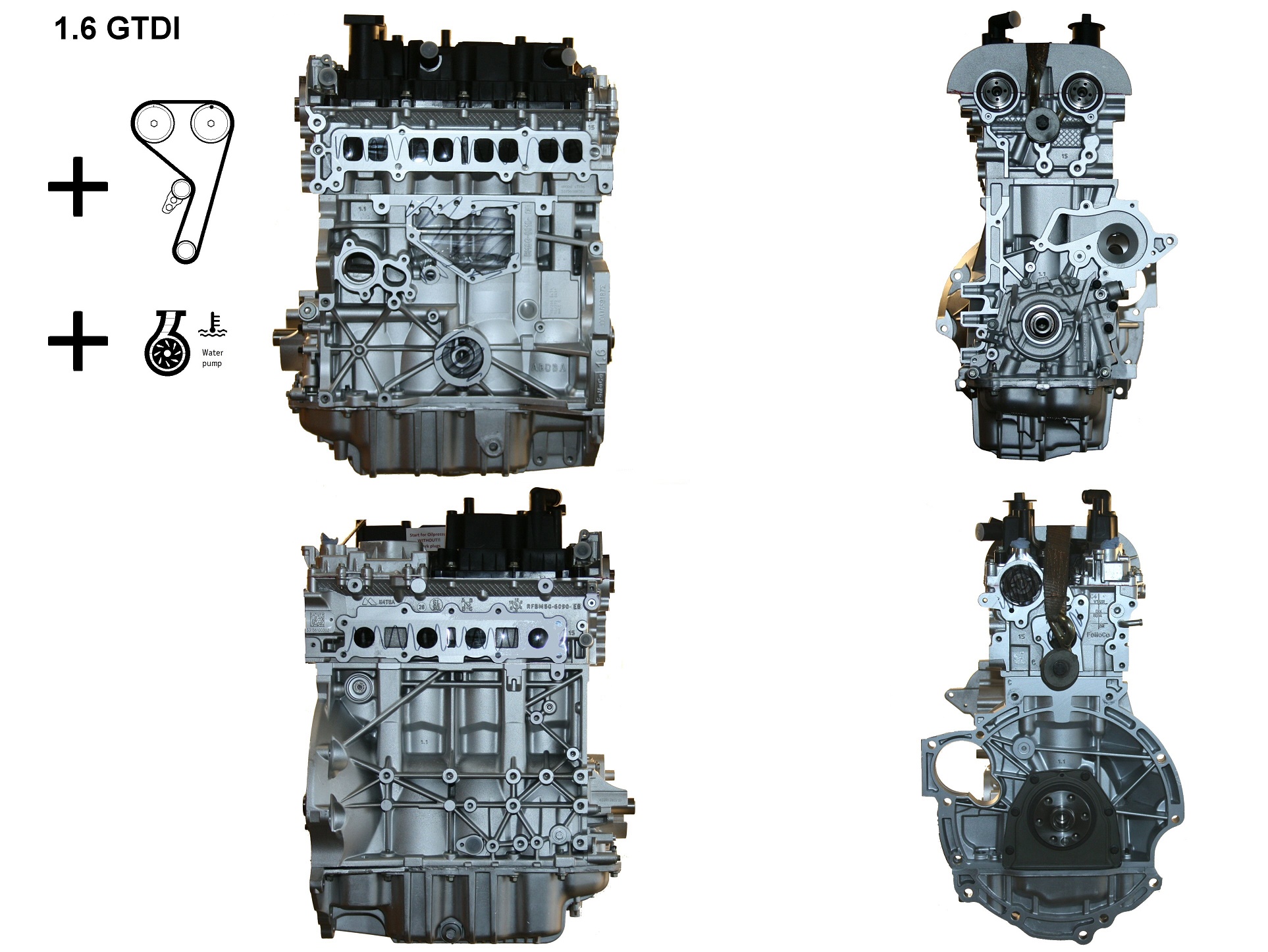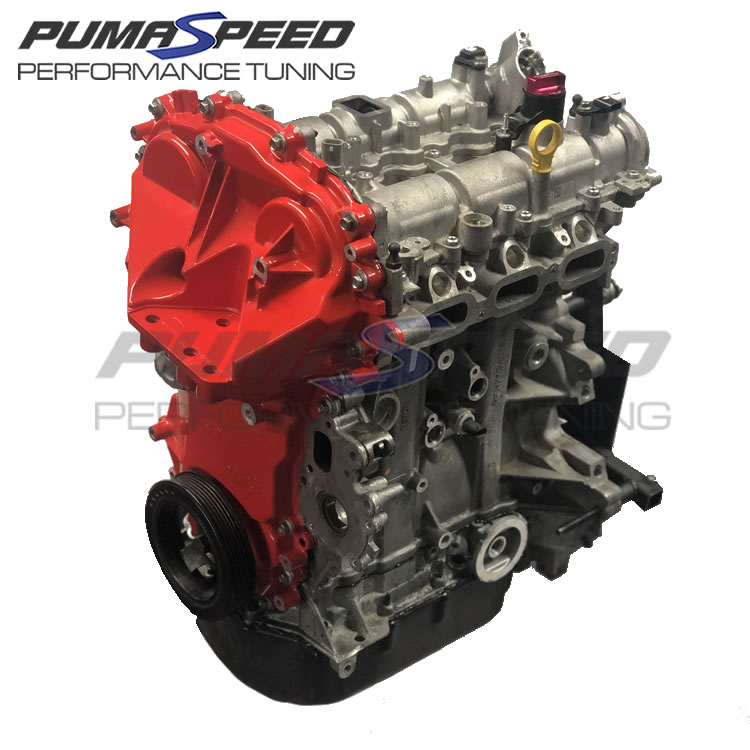Why Choosing the Right Ford Fiesta Engine Parts Matters for Longevity
Wiki Article
The Future of Engines: Innovations Driving Sustainable Power Solutions
As the auto industry navigates the crucial transition in the direction of sustainability, the future of engines is progressively defined by groundbreaking advancements. Electric engine innovations, along with appealing growths in hydrogen fuel cells and biofuels, are reshaping the landscape of power solutions.Electric Engine Developments
The evolution of electrical engine advancements symbolizes an essential shift in the vehicle and aerospace sectors, driven by the urgent demand for sustainable options to fossil gas. This shift is characterized by significant developments in battery technology, power electronic devices, and electrical motor style, which collectively improve the efficiency and efficiency of electric engines.Recent innovations have caused the development of lighter, much more energy-dense batteries, such as lithium-silicon and solid-state batteries, which promise longer varieties and shorter charging times. Additionally, improvements in electrical motor efficiency, such as making use of long-term magnets and advanced cooling down systems, allow electric engines to operate efficiently under varying problems. These enhancements not just boost car efficiency however also add to a decrease in overall power usage.
In addition, the integration of innovative software application algorithms has enhanced energy administration in electric automobiles, enabling for regenerative braking and predictive billing techniques. As suppliers progressively accept electrical propulsion, the aerospace and vehicle fields are seeing a standard shift in the direction of greener modern technologies. This advancement not only fulfills governing needs yet likewise aligns with consumer choices for eco-friendly transport services, solidifying electrical engines as a foundation of future sustainable mobility.
Improvements in Biofuels
As the aerospace and vehicle industries progressively prioritize sustainable power resources, advancements in biofuels emerge as a complementary service to electrical engines. Biofuels, acquired from organic products such as plants, waste, and algae, present an ingenious method for decreasing greenhouse gas emissions and reliance on fossil gas.Current research has focused on boosting the performance and sustainability of biofuel production. Second-generation biofuels make use of non-food feedstocks, reducing competition with food supply and lowering ecological effect. Improvements in synthetic biology have actually enabled the engineering of microorganisms to create biofuels a lot more successfully, leading to higher yields and lower production expenses.
In addition, the growth of drop-in biofuels enables seamless assimilation into existing facilities, making it possible for a smoother change for industries generally depending on fossil gas. ford fiesta engine. These fuels can be made use of in present engines without adjustments, facilitating their adoption throughout various sectors
Investments in biofuel innovation, in addition to encouraging policies, are vital to drive advancement and scalability. As the global community seeks to deal with environment adjustment, biofuels provide a pragmatic, immediate remedy that lines up with the overarching objective of sustainability in transportation and aviation.
Hydrogen Gas Cell Modern Technology
An expanding variety of companies and researchers are discovering hydrogen gas cell technology as a practical choice to traditional source of power in transportation and energy systems. This technology transforms chemical energy from hydrogen right into electrical power through an electrochemical reaction, with water as the only by-product, making it an eco pleasant alternative.The core of hydrogen fuel cells is the fuel cell stack, where hydrogen molecules are split into protons and electrons. The flow of electrons creates electricity, while protons relocate through a membrane layer to resource combine with oxygen from the air, creating water. This process results in high performance and low discharges, positioning hydrogen gas cells as a crucial player in the transition to lasting power.
Considerable innovations have actually been made in enhancing the durability and efficiency of gas cells, together with reducing expenses through cutting-edge manufacturing methods. Additionally, the development of hydrogen production techniques, such as electrolysis powered by renewable resource sources, enhances the sustainability of the overall system. As facilities for hydrogen refueling expands and manufacturing techniques come to be more effective, hydrogen gas cell technology holds fantastic pledge for decarbonizing different industries, consisting of sturdy transportation and fixed power generation.
Crossbreed Solutions and Their Effect
Crossbreed systems stand for a substantial advancement in lasting engine innovation, merging standard inner combustion engines with electric propulsion to optimize energy performance and reduce discharges (ford fiesta engine). This double strategy enables vehicles to use both power resources, allowing higher adaptability in power consumption and decreasing dependence on nonrenewable fuel sources

Along with environmental benefits, hybrid systems provide customers a feasible shift in the direction of completely electric vehicles. They minimize array stress and anxiety by incorporating the ease of fuel with the benefits of electric propulsion, making them an attractive option for a broader audience. As suppliers spend hop over to here in hybrid innovation, the development of advanced battery systems and light-weight materials remains to improve performance. Overall, hybrid systems stand for a crucial action in the direction of attaining sustainable transportation and resolving the urgent demand for environmentally friendly power services.
top article
The Role of AI in Engine Layout
Leveraging innovative algorithms and artificial intelligence strategies, the automobile sector is progressively integrating expert system (AI) into engine style procedures. AI enhances the effectiveness and efficiency of design by examining substantial datasets to recognize ideal arrangements and efficiency specifications. This capability enables engineers to imitate numerous operating problems and forecast engine actions under multiple circumstances, substantially minimizing the moment and cost connected with standard prototyping approaches.In addition, AI promotes the growth of sophisticated materials and burning procedures tailored for sustainability. By maximizing fuel effectiveness and lessening emissions, AI-driven styles line up with international initiatives aimed at lowering the carbon footprint of auto engines. Device learning formulas can additionally anticipate maintenance demands, resulting in boosted dependability and longevity of engine elements.
Furthermore, AI contributes in the assimilation of electrification modern technologies, such as hybrid systems, where it can optimize battery administration and energy recuperation processes. As the sector moves in the direction of more lasting power solutions, the duty of AI in engine style becomes increasingly vital, driving advancement and improving the efficiency of future engines. Inevitably, the partnership in between AI and engine design declares a new era of smarter, cleaner, and more reliable vehicle technologies.

Conclusion
In verdict, the future of engines is being formed by a merging of ingenious modern technologies that focus on sustainability. Electric engine innovations, biofuel advancements, hydrogen gas cells, and crossbreed systems jointly add to a significant reduction in emissions and ecological effect.Electric engine advancements, alongside promising growths in hydrogen gas cells and biofuels, are reshaping the landscape of power remedies. Furthermore, renovations in electric motor performance, such as the usage of irreversible magnets and progressed cooling down systems, allow electric engines to run properly under differing problems. By enhancing fuel performance and lessening exhausts, AI-driven styles align with global initiatives intended at decreasing the carbon footprint of automobile engines. As the market moves in the direction of more sustainable power options, the duty of AI in engine design becomes progressively vital, driving technology and improving the efficiency of future engines. Electric engine improvements, biofuel developments, hydrogen fuel cells, and crossbreed systems collectively contribute to a substantial decrease in emissions and ecological influence.
Report this wiki page